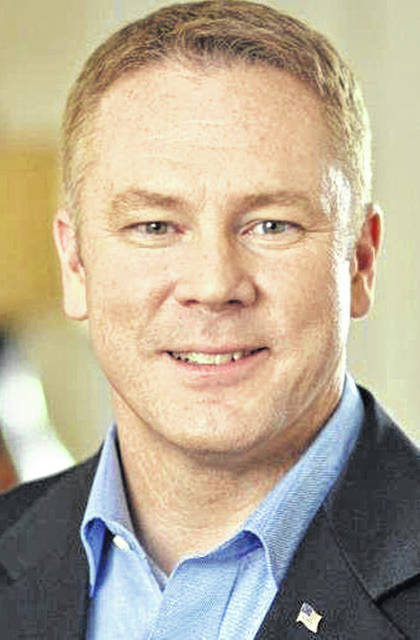
Status quo is a Latin phrase meaning the “existing state of affairs.” I ran for Congress to change “the existing state of affairs” in Washington. Before starting this journey, I spent the previous fifteen years building manufacturing businesses across Ohio’s 8th district. We were over-regulated and over-taxed, and increasingly, I grew frustrated with politicians kicking the can down the road on a variety of issues.
I have now been in Congress for three years, having first finished John Boehner’s unexpired term and then being re-elected to a full term. In these 3 short years, I have made a few initial observations about our federal government.
Spending in Washington is a bipartisan addiction. The two appropriations packages Congress passed before Christmas come with a $1.4 trillion price-tag. If that sounds like a lot, consider that the government will spend a staggering $4.6 trillion in 2020.
Contrary to popular understanding of the Tax Cuts and Jobs Act, the federal government collected a record-breaking $3.6 trillion in federal taxes and fees. In 2020, we can expect the government to bring in another $300 billion due to the law’s stimulating effects on the economy. Yet, Washington still has a money problem because it refuses to tighten its belt. The U.S. government will have to borrow another trillion dollars in 2020 to make up the difference — at a time when we have record federal revenue.
The spending packages passed before Christmas enjoyed the support of both parties. By packing a bipartisan list of goodies for various special interests into the bills, House and Senate appropriators ensured their passage. This amounts to handing out more “free” services and subsidies to more people, even though the taxpayers—and our grandchildren — undoubtably will be paying for them. Certainly, there are lots of things I support within the 2020 appropriations bills, but I oppose these gargantuan, rushed spending bills because it is not compassionate to bankrupt America.
Don’t trust the name of a bill. The more time I spend in Washington, the more bills with misleading titles I vote against. So many bills introduced in Congress come with names like the “Insider Trading Prohibition Act” or the “For the People Act.” These titles are political marketing devices that often mask legislation that expands the government, erodes civil liberties, or grants privileges to favored groups. It’s important to pay attention to these details and to not be “guilted” into voting for a bad bill with a good name.
Freedom is as precious as it is precarious. Often, in the name of protecting freedom, our government has compromised the privacy of its citizens and authorized irresponsible military conflicts in the Middle East. Despite invoking national security, fighting endless wars does not make Americans safer.
As we saw in Iraq recently, our presence in the Middle East requires the U.S. to take decisive action to protect lives and property. In the wake of escalated violence from Iran, I believe it is time to rescind old military authorizations that endanger Americans and drain the federal coffers.
I’ve long been concerned about government surveillance. In October, the court found that in 2017 the FBI had conducted more than 3.1 million warrantless searches of Americans — using the Foreign Intelligence Surveillance Act (FISA). The subsequent release of the Horowitz Report showed that the FBI abused FISA to monitor the Trump campaign. I look forward to renewing conversations about how we can protect Americans from intrusive overreach by federal intelligence agencies. I hope similar civil liberties issues, like asset forfeiture and free speech will attract a growing consensus.
Common problems. My colleagues across the aisle share many of the same concerns I have, because we hear similar things from our constituents. The cost of healthcare, the importance of infrastructure, keeping our economy strong and growing, dealing with broken immigration laws, and always keeping America secure. Clearly, however, we disagree on the best ways to get there.
Make no mistake that 2019 was a tumultuous year, and with an election less than twelve months away, I’m sure we can expect another eventful year. I will remain true to the principles that voters elected me to uphold, even as I work with my congressional colleagues to cultivate a different culture in Congress — one that values action, accountability, and collaboration to benefit for all Americans. Congress is broken in many ways, but it is broken differently than I expected. Thankfully, there are people of good will who share my desire to change the broken status quo. I am committed to this course, and I am optimistic for 2020 and our future.


